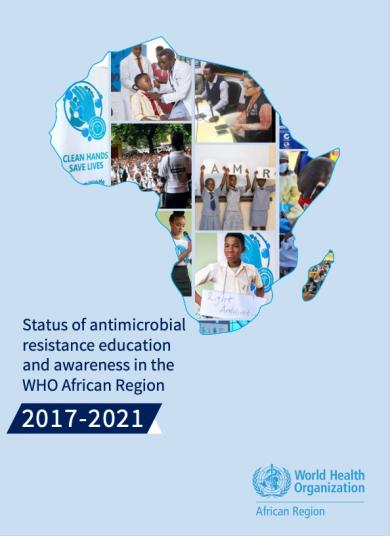
Status of antimicrobial resistance education and awareness in the WHO African Region 2017-2021
Improving AMR awareness and understanding and promoting evidence driven behavioural change througheffective communication, education and training are critical to tackling antimicrobial Resistance (AMR), a global health crisis that disproportionately affects low- and middle-income countries (LMICs). AMR awareness and education interventions are key if we are to influence appropriate antimicrobial use and consumption inpeople, communities and healthcare institutions.
To effectively address the gaps related to AMR awareness and education, the World Health Organization's African Region (WHO AFRO) has released a comprehensive baseline report detailing the state of AMR education and awareness in the African Region, from 2017 to 2021. The report acknowledges the progress and challenges faced by Member States in the implementation of AMR education and awareness interventions. Among the key challenges are the lack of capacity to create, design, and effectively position coherent AMR awareness messages, as well as difficulties in securing sustainable financing. It further makes recommendations on non-cost intensive interventions that can be implemented to address the identified gaps.This baseline report serves as a crucial foundation for WHO AFRO's ongoing efforts to galvanize regional responses against AMR, providing essential data to guide future long-term sustainable approaches to implementing AMR education and awareness interventions that go beyond yearly commemoration of the world antimicrobial resistance awareness week (WAAW).


